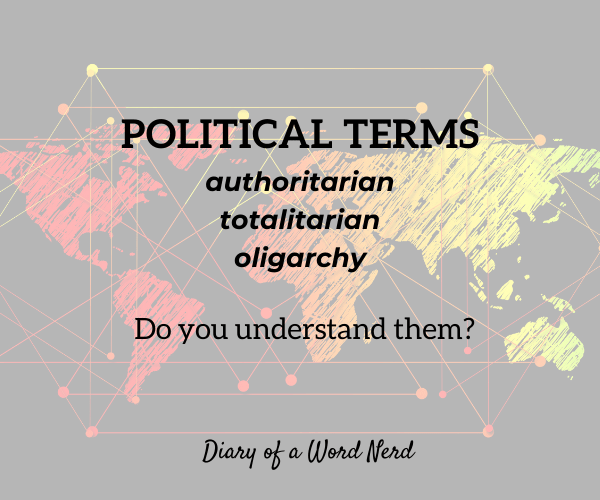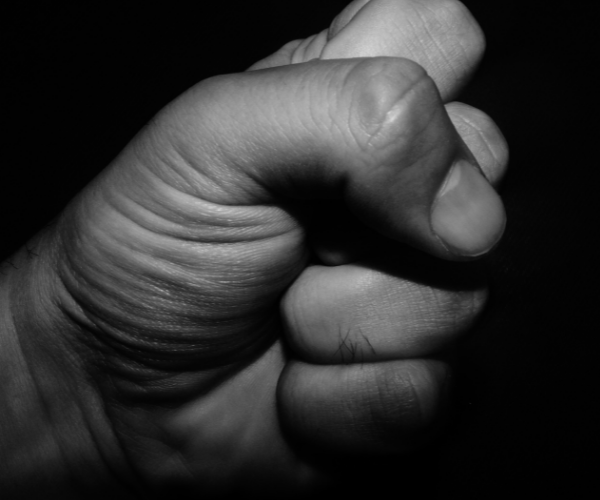As Vladimir Putin drops bombs on major cities and military installations in Ukraine, we are once again hearing lots of loaded political words, like authoritarian, totalitarian, and oligarchy. This Word Nerd is concerned we might freely throw around these descriptors with a vague sense of their meaning, but without true understanding. So as tanks roll in to Eastern Ukraine, let’s take a look at a couple of words often used to describe Russia and its current president, Vladimir Putin.
Authoritarian
According to Britannica, authoritarian comes from the Latin root auctoritat, auctoritas, meaning opinion, decision, power. Authoritarian governments promote a blind submission to authority instead of individual freedom and choice. Such governments put power in the hands of one leader or a small elite who do not have their responsibilities outlined in a constitution or similar governing document.
Usually, authoritarian rulers exercise their power arbitrarily and the people they rule have no viable means of replacing them by fair elections. There is little to no power to create political opposition parties or organizations. Many scholars point to the military dictatorships of Latin America in the 20th century as good examples of authoritarian governments.
Authoritarianism could be considered the opposite of a democracy. It is often compared with totalitarianism, except there are a few key differences.
Totalitarianism
Totalitarianism was first used in the 1920s by Italian dictator Benito Mussolini to describe Italy as “all within the state, none outside the state, none against the state.” By the start of World War II, totalitarianism was associated with an oppressive single party government. Unlike authoritarianism, totalitarian regimes usually have a guiding ideology as well as the power to mobilize the entire population for a national goal. Think of Stalin’s Soviet Union or Germany under Adolf Hitler and the Nazis. (Thanks again, Britannica.)
Oligarchy
According to etymonline, an oligarchy is “a form of government in which supreme power is vested in a small exclusive class.” It comes from French oligarchie (14c.), from the Latinized form of Greek oligarkhia “government by the few,” from stem of oligos “few, small, little” (a word of uncertain origin) + -arkhia, from arkhein “to rule.” Merriam-Webster says that oligarchy carries the implication of corruption as well.
Muddy terms
Of course it’s hard to use just one word or term to describe something as complicated as a country and its government. Consider the May 2021 article “Russia’s Adaptive Authoritarianism” from Newlines Institute for Strategy and Policy. It says, among other things, that Russia isn’t a simple totalitarian regime. Putin is head of state, but he coordinates the desires of interest groups and elites. And the elite “doesn’t simply rule through blunt authoritarianism but has instead established a more nuanced, tightly controlled system of “managed democracy” that plays an important role in establishing legitimacy for the elite. This system effectively shares the trappings of both democracy and dictatorship.”
Yikes. Nuanced systems, managed democracy, and the active combining of democracy and dictatorship? This is exactly why we need to understand the terms we use and pay attention to the people in power.
I am by no means an expert in political science. I am just a concerned citizen trying to get a handle on world events and the best way to describe them. If you can add further clarification to the terms authoritarian, totalitarian, or oligarchy, please do so in the comments!
What political terms are you pondering these days?
Thanks for getting nerdy with me!





Why do use the phrase “make his stand,” which carries with it the notion of defense or of “holding one’s ground” in regard to Putin? Certainly, that’s how HE views the situation, and how he wants the world to regard what is in fact blatant, lawless aggression. Most of the world doesn’t see it that way.
Very fair criticism. Thank you for pointing that out, and I will change my wording because I also see it as aggression and NOT defense. Thanks for commenting.